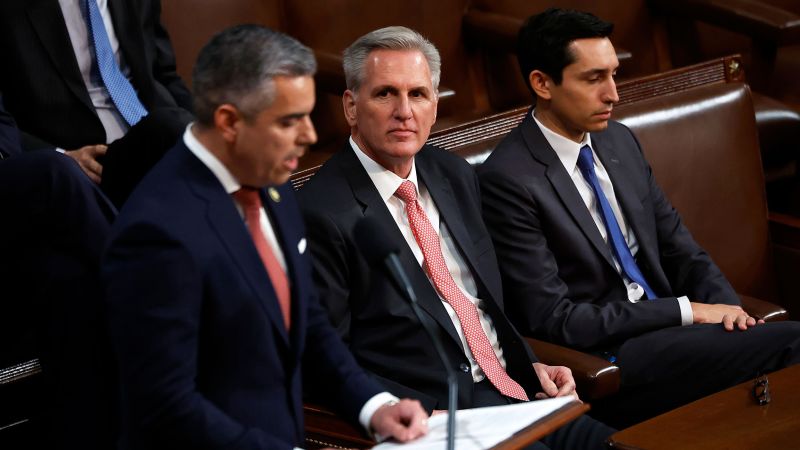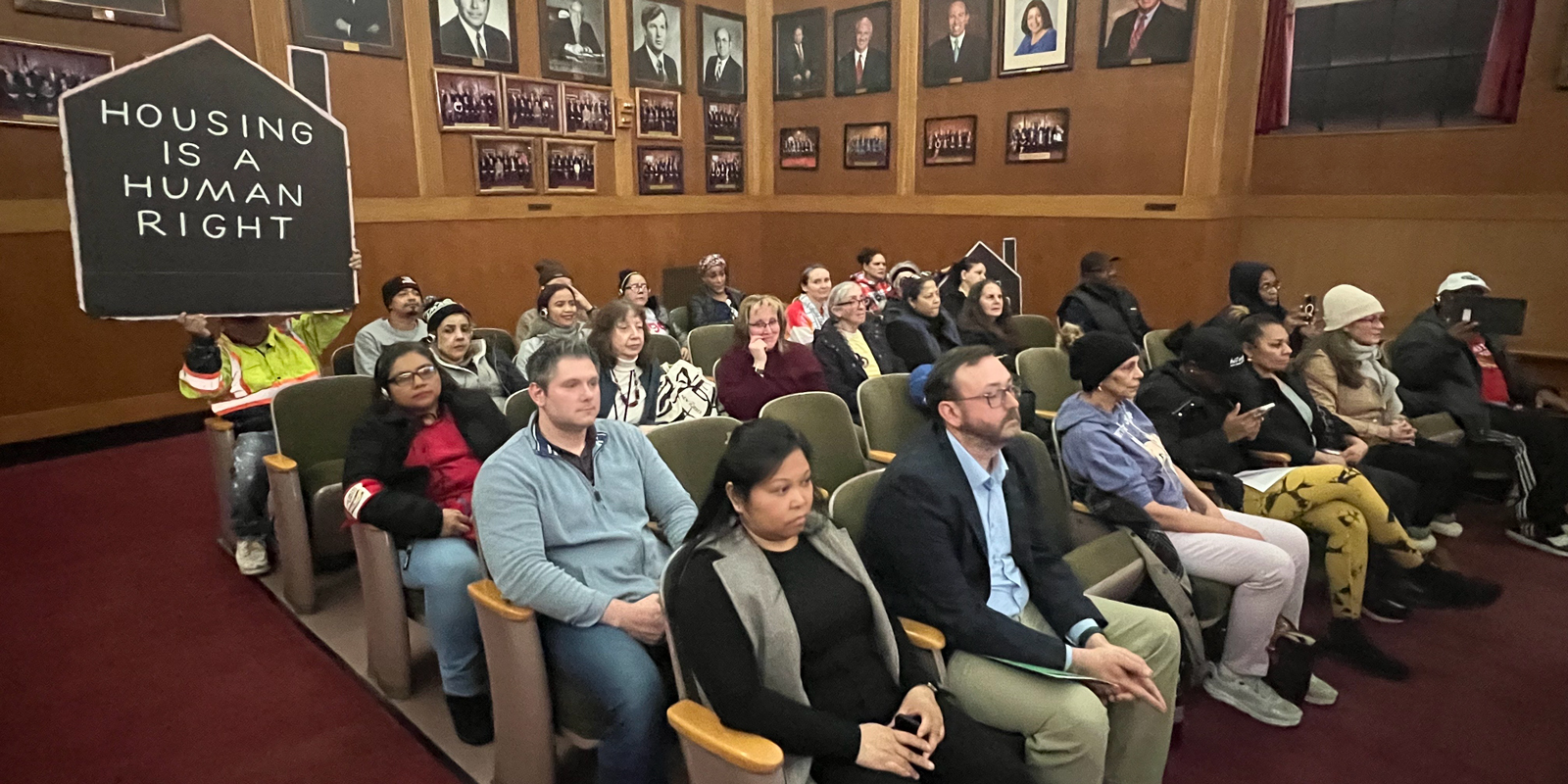CNN
—
In a dramatic shift, Kevin McCarthy has so far managed to flip 15 votes on Friday in his bid to become the next House speaker, though the California Republican is still short of the support needed to win. The House has voted to adjourn until 10 p.m. ET.
McCarthy is locked in a fight for his political future as the California Republican attempts to win the votes he needs to become speaker of the US House of Representatives in what has now become the longest contest in 164 years.
As efforts to secure a deal with holdouts have gained momentum, McCarthy is now projecting confidence that he will be able to win the gavel this evening.
“When we come back tonight, we’ll have the votes to get this done once and for all. It just reminds me of what my father always told me, it’s not about how you start, it’s about how you finish,” McCarthy told reporters.
McCarthy’s team is already taking steps to organize the House soon after his expected victory, according to multiple GOP sources.
McCarthy allies have told members to prepare for a very late night to approve a rules package after they are sworn into office, the sources said. Those final votes could stretch past midnight.
Moderates have been frustrated by the concessions McCarthy has made, which many believe may make it harder for the new GOP majority to effectively govern, though they will likely still swallow them. Indeed, some of them may weaken his hand if he does become speaker, though he has disputed that suggestion.
“I think at the end of the day we’re going to be more effective, more efficient and that definitely government is going to work,” he said Friday.
Several Republican members who switched their votes to back McCarthy on Friday said they are encouraged by a framework of an agreement, but provided no specifics about the deal and said talks are ongoing.
“It is a framework of an agreement in good faith that allows us to keep moving forward,” Perry told reporters after 14 House Republicans flipped their vote for McCarthy in the twelfth roll call.
Roy cautioned the talks are ongoing and there is more work to be done.
“We’re not done yet, right. We don’t have 218 on the floor yet and we’re going to keep having conversations,” Roy said.
Bishop said: “The central details are known. This framework has a considerable amount of details. We’ve worked very hard to make sure it is achievable, that it has teeth and it is understood well.”
In pictures: The House speaker stalemate
The 14 votes who flipped in favor of McCarthy on the 12th ballot are: Reps. Dan Bishop of North Carolina, Michael Cloud of Texas, Andrew Clyde of Georgia, Byron Donalds of Florida, Mary Miller of Illinois, Ralph Norman of South Carolina, Scott Perry of Pennsylvania, Chip Roy of Texas, Victoria Spartz of Indiana (who had been voting present and had said she would continue to do so until she saw progress), Paul Gosar of Arizona and Reps.-elect Josh Brecheen of Oklahoma, Anna Paulina Luna of Florida, Keith Self of Texas and Andy Ogles of Tennessee.
On the 13th ballot, McCarthy picked up one more supporter: Rep. Andy Harris of Maryland.
There are still six Republicans voting against McCarthy: Reps. Andy Biggs of Arizona, Lauren Boebert of Colorado, Matt Gaetz of Florida, Bob Good of Virginia, Matt Rosendale of Montana and Rep.-elect Eli Crane of Arizona.
Two members who have been absent for votes on Friday – Rep. Ken Buck of Colorado and incoming freshman Wesley Hunt of Texas – are expected to return Friday night. Both lawmakers are McCarthy supporters.
On the 12th round of voting, the final tally was 213 for McCarthy, four for Rep. Jim Jordan and three for Rep. Kevin Hern.
In the 13th round, McCarthy had 214 votes and Jordan had six.
Part of the strategy to secure McCarthy the speakership is to get some of the holdouts to vote “present,” according to several sources. That would reduce the threshold for winning the speaker race below 218 since the rules say the winner of the race needs to have a majority of those voting for a specific candidate.
If two vote “present,” 217 votes are needed to win. If three vote “present,” that takes it down to 216 to win.
If just one person votes “present,” however, McCarthy would need to flip a holdout member to win.
Another plan from McCarthy’s allies has been to pick the remaining holdouts off one-by-one to get the speaker votes.
That strategy, according to sources involved, includes leaning on former President Donald Trump to help squeeze the holdouts. Their camps have been in touch and believe Trump is willing to make some more calls. Another source said Trump is making calls for McCarthy.
So far, Trump’s entreaties have not moved the needle, but he also has not put much capital into it. Now Trump has an opportunity to claim victory with a McCarthy speakership actually in reach.
However, Trump’s team sees a handful of the critics as unwinnable, including Gaetz and Boebert, and won’t waste time on them.
McCarthy kicked off a GOP conference call on Friday morning by saying an agreement had still not been reached, sources tell CNN. But he tried to strike a more positive, gracious tone and laid out some of the details that have emerged in the negotiations, the sources added.
McCarthy said committees need to be a microcosm of the conference, with more far-right Freedom Caucus members on all committees, a signal that promising committee posts have been a key part of the negotiations. Sources say McCarthy is describing this as equal representation.
But GOP Rep. Patrick McHenry of North Carolina, a McCarthy ally and negotiator in this process, said on the call that no committee gavels have been promised and that talk of that is all rumors, sources told CNN.
Several members said ahead of the vote they were very close to a deal that in many ways is an attempt to rebuild frayed alliances and trust hampered by a harsh Tuesday morning conference meeting.
“The main things we’re talking about are a conservative agenda around spending and the nature of our Republican majority,” McHenry said. “That’s really the crux of the conversation. And that’s really the contours of it.”
McHenry said process changes and rule overhauls are part of the talks.
“Rules, structure and process dictate outcomes in this place, in a substantial way,” McHenry said. “So you want to make sure all those things are in place.”
He added: “What I’ve seen over the last 36 hours is immense amount of effort to take the emotion out of this and get into the substance of the challenges.”
McHenry said they are not discussing issues like specific committee assignments for holdouts, but talking about their agenda around issues like spending.
CNN was first to report on Wednesday night that in a series of key concessions, McCarthy agreed to propose a rules change that would allow just one member to call for a vote to oust a sitting speaker, according to two sources familiar with the matter. McCarthy had initially proposed a five-member threshold, down from current conference rules that require half of the GOP to call for such a vote.
He also agreed to allow for more members of the Freedom Caucus to serve on the powerful House Rules Committee, which dictates how and whether bills come to the floor, and to vote on a handful of bills that are priorities for the holdouts, including proposing term limits on members and a border security plan.
On the concessions he’s made so far, McCarthy said Thursday evening that he’s not concerned about giving just one member the power to call for a vote to oust the speaker. “I’m very fine with that,” the California Republican said. “I’m not afraid. … I won’t be a weaker speaker.”
This story and headline have been updated with additional developments.




















